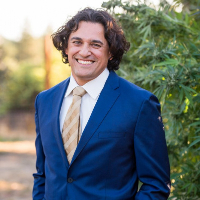Sonoma County, CA RICO Act Lawyers
Sponsored Law Firm
-
 x
x

Click For More Info:
-
Heather Wise Attorney at Law
700 College Ave Suite 1 Santa Rosa, CA 95404» view mapCriminal Defense Effective, Compassionate, & Tenacious
Ms. Wise is committed to supporting the safety and rights of our entire community. She is intent on providing compassionate and effective representation.
800-920-7321
Not enough matches for Sonoma RICO Act lawyer.
Below are all Sonoma lawyers.
Eric Gene Young
✓ VERIFIEDEric Young is a practicing litigation attorney in California and owner of the Young Law Office. The Young Law Office is a civil litigation law firm re... (more)
Stephen Joseph Healy
✓ VERIFIEDStephen Healy has practiced law for over 27 years, now focusing his practice on asbestos compensation claims and asbestos civil litigation in state an... (more)
Omar Curiel Figueroa
✓ VERIFIEDOmar Figueroa has more than twenty two years of experience at the vanguard of California cannabis law and is widely respected as an industry expert. ... (more)
Roy E. Miller
✓ VERIFIEDRoy E. Miller was raised in San Diego, California and attended the University of Arizona graduating in 1989 with a degree in Political Science. He is ... (more)
Helen Marsh
✓ VERIFIEDHelen grew up in St. Paul, Minnesota and attended college at Hamline University, where her father was a history professor. She headed to California to... (more)
FREE CONSULTATION
CONTACTAdrienne M. Moran
FREE CONSULTATION
CONTACTFREE CONSULTATION
CONTACTJoshua Katz
FREE CONSULTATION
CONTACT Heather Wise Santa Rosa, CA
Heather Wise Santa Rosa, CA Practice AreasExpertise
Practice AreasExpertise





